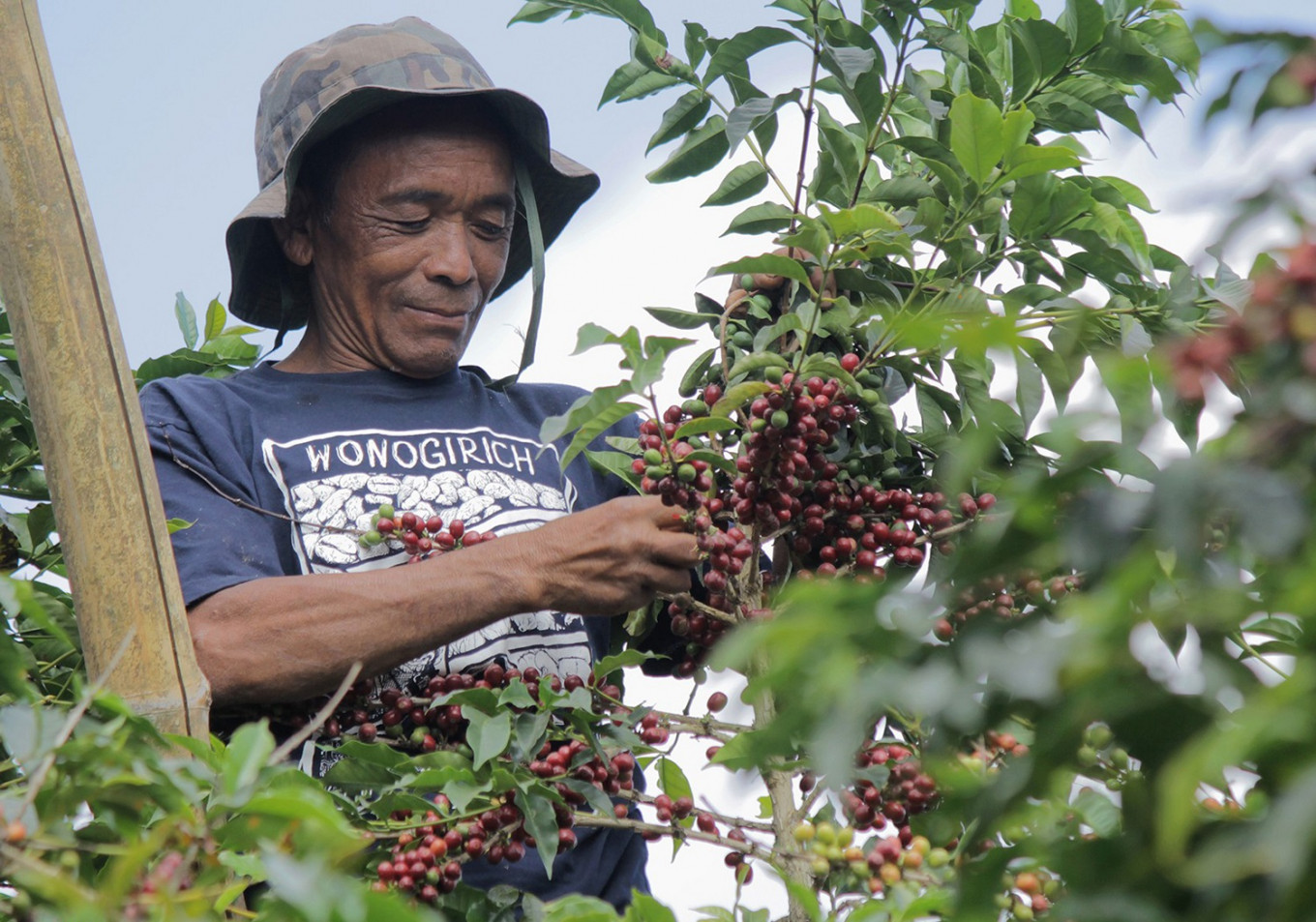Popular Reads
Top Results
Can't find what you're looking for?
View all search resultsPopular Reads
Top Results
Can't find what you're looking for?
View all search resultsWonogiri to offer coffee tourism starting next year
Coffee tourism in Central Java's Wonogiri is set to begin attracting tourists next year.
Change text size
Gift Premium Articles
to Anyone
For several villages in Wonogiri, Central Java, coffee has been around for decades.
In the colonial era, a coffee processing plant was established in Ngasihan village in Ngadirojo district. Arabica and robusta beans were transported from Bulukerto and Girimarto subdistricts on the slopes of Mount Lawu. In 1860, the Gondosini region in Bulukerto was made the center for coffee plantations and nurseries by Mangkunegara IV.
When the Dutch no longer ruled, Wonogiri coffee began to disappear.
Sular, a coffee farmer in Sumber Village, told The Jakarta Post that almost all residents had coffee plants in their yards. “But the plants are hardly tended to. When they bear fruit, the cherries are left on the ground,” he said.
In the last two years though, coffee farmers in Wonogiri have started to get busy, especially in areas like Bulukerto, Girimarto, Jatiroto and Tirtomoyo. Sular encouraged them to process the coffee in the proper manner.
Armed with the correct processor, farmers can now fully reap what they sow as the price of coffee has nearly quadrupled.
Read also: A journey into the mountains for a cup of coffee
Haryanto from the Wonogiri Coffee Community and Yosef Bagus Adi Santoso from Wonogirich Coffee House also invited the farmers to improve their harvests by educating them on how to cultivate their coffee crops.
"We challenge the farmers by buying only the quality crops. The price is now Rp 70,000 per kilogram, while in the first year, we purchased them for Rp 50,000. This is also a way to cut through middlemen who buy the crops at a low price," said Anto.
The Wonogiri Coffee Community and Wonogirich routinely hold events to promote Wonogiri coffee, including the Wonogiri Nduwe Kopi (Wonogiri Has Coffee) and Wonogiri Nandur Kopi (Wonogiri Planting Coffee) movements, as well as a number of coffee festivals.
Wonogiri Regent Joko “Jekek” Sutopo said that three areas were being prepped for coffee tourism, namely Girimarto, Jatisrono and Bulukerto. Tourists can expect to visit the coffee processing plant, witness how the beans are cultivated and later enjoy them as a beverage.
“By next year, all three villages will be ready to welcome visitors. These coffee villages will allow them to enjoy both nature and coffee,” he said. (ran/wng)







